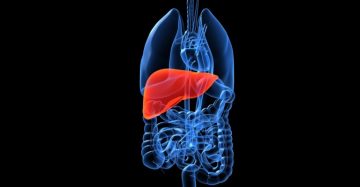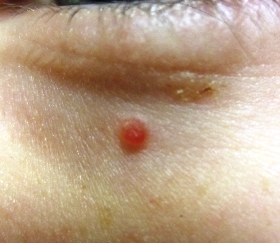By Dr. Eileen Murray on October 3, 2017
When I started out in dermatology, corticosteroids were the only systemic drug available to treat patients with severe allergic contact dermatitis (ACD), atopic dermatitis (AD), drug reactions and those with bullous diseases. Corticosteroids are potent and excellent immunosuppressive agents. The main problem with systemic use is the high risk of drug interactions, as well as multiple serious acute and long-term side effects.
By Dr. Taryl Felhaber on September 20, 2017
Why should physicians encourage early and ultimate return to work whenever they can? In a nutshell, because it is usually in the patient’s best interest to remain in the workforce.
By Dr. Jennifer Grant on September 6, 2017
Recent data show that up to 90% of patients with a reported penicillin allergy are mislabelled and of those who are allergic, many beta-lactams can still be safely prescribed due to low risk of cross-reactivity. Mislabelling of penicillin allergy is due to many things including misdiagnosis (confusing a viral exanthema for allergy), purer formulations of antibiotics, loss of allergy and differences in side-chain structure.
By Drs. Christopher Cheung and Kenneth Gin on August 9, 2017
Perioperative management of anticoagulation is challenging as physicians must consider the risks of stroke, systemic embolism, and perioperative bleeding.
By Dr. Anne Antrim on July 18, 2017
The current definition of Autism Spectrum Disorder has 2 criteria: “persistent impairment in reciprocal social communication and social interactions” AND “restricted, repetitive patterns of behavior”. The symptoms must be present from early childhood, but may not manifest till the social demands exceed the capacity of the child to respond.
By Dr. Roberto Leon on June 20, 2017
One of the most complex decisions that women (and their physicians) occasionally need to take in mid-life is whether to use prescription medications for their menopausal symptoms. Previously known as Hormone Replacement Therapy (HRT), Menopause Hormone Therapy (MHT) is an effective and evidence based treatment for moderate to severe hot flashes and/or night sweats (defined as bothersome enough to interfere with daily activities, impair quality of life and/or interrupt sleep).
By Cait O'Sullivan on May 31, 2017
When I identify strong drug therapy recommendations of particular relevance to my practice scope, I seek collateral information and there are two resources I routinely incorporate into my literature search. I start with the Cochrane Library and then check to see whether a FDA advisory committee has weighed in on key issues.
By Dr. Randall White on May 10, 2017
When psychiatric patients are treated in an emergency department, they are often hypervigilant, manic, or otherwise in an excited, agitated state. The current standard of care to manage acute agitation in adults is using an antipsychotic medication and a benzodiazepine, often loxapine or haloperidol and lorazepam.
By Dr. Gordon Francis on April 26, 2017
High Lp(a) is a major CVD risk factor that should be measured and acted upon in patients and families where there is history of premature CV events but lack of clear risk factors, and in patients with known CVD and recurrent events despite treatment to LDL-C target.
By Drs. Charlie Chen and Hayden Rubensohn on April 12, 2017
What is the patient willing to consent to as treatment if his/her condition were to seriously deteriorate? The Serious Illness Conversation Guide developed by Ariadne Labs provides a framework for physicians to engage in care planning with patients in a manner acceptable to the patient.
By Dr. Dan Bilsker on March 8, 2017
Treatment plan should specifically target psychological problems that are barriers to occupational, relationship or emotional function, rather than broadly defined issues. Being able to return to work is a substantial benefit for the individual: staying at home for an extended time is damaging to the individual’s self-esteem, coping ability and psychological health. Practice “positive psychology”, emphasizing the outcomes that determine the meaning and success of one’s life and focus on individual’s strengths to reach goals.
By Dr. Martha Spencer on February 22, 2017
Martha Spencer, MD, FRCPC, Providence Health Care, Clinical Instructor, UBC (biography and disclosures) Disclosures: Education grant from Pfizer to help support my incontinence fellowship in Edmonton, Grant from Pfizer ($10 000) to support start-up costs for the Geriatric Continence Clinic at SPH. Mitigating potential bias: Only published trial data is presented and recommendations are consistent […]
By Dr. Ric Arseneau on February 8, 2017
The PLEASE trial (Persistent Lyme Empiric Antibiotic Study Europe) was published in the New England Journal of Medicine in March 2016. This randomized, double-blind, placebo-controlled study assessed whether longer-term antibiotic treatment of persistent symptoms attributed to Lyme disease leads to better outcomes than does shorter-term treatment.
By Dr. Joseph Lam on January 10, 2017
Pyogenic granulomas or lobular capillary hemangiomas are common acquired vascular tumors accounting for 0.5% of all skin nodules in children. They occur predominantly on the head and neck. Although they are benign vascular proliferations, treatment is often sought because of recurrent episodes of bleeding due to a propensity to superficial ulceration and bleeding.
By Dr. Ric Arseneau on November 30, 2016
Chronic Fatigue Syndrome (CFS) – also known as Myalgic Encephalomyelitis (ME) and Systemic Exertion Intolerance Disease (SEID) – is a common clinical condition. Yet, it is under- recognized and diagnosed. An estimated 84–91% of patients with the condition remain undiagnosed.
By Dr. Paul Mullins on October 26, 2016
Alcoholic hepatitis (AH), perhaps more accurately described as alcohol-related cholestatic liver failure, is a clinical syndrome with high mortality. In severe AH at 28 days: 30-40%. STOPAH is a UK multi-centre, double-blind, randomized trial in severe AH to assess the effect of Prednisolone and/or Pentoxifylline on mortality at 28 days, and mortality or liver transplantation at 90 days and at one year.
By Dr. Joseph Lam on October 25, 2016
Pyogenic granulomas or lobular capillary hemangiomas are common acquired vascular tumors accounting for 0.5% of all skin nodules in children. Although they are benign vascular proliferations, treatment is often sought because of recurrent episodes of bleeding due to a propensity to superficial ulceration and bleeding.
By Dr. Alisa Lipson on September 28, 2016
As a general pediatrician, I see many children whose behaviour and/or development is not emerging as expected. A diagnosis such as autism or learning disability may be the obvious explanation; but frequently it is not so straightforward. Parents come armed with questions about ‘processing disorders’ and and they expect their MD to be knowledgeable.
By Dr. Jan Hajek on August 3, 2016
For diabetes in particular, observational studies suggest that persons who follow a plant-based diet have a lower risk for diabetes, and an RCT demonstrated reductions in HbA1c in patients with diabetes randomized to a vegan diet compared to the standard American Diabetes Association diet.
By Dr. Roberto Leon on July 12, 2016
Up until recently, pain management with IUDs (intrauterine devices) insertion was not commonly performed, as most users were multiparous women and the insertion was reasonably straightforward. However, because the IUDs provide unsurpassed protection against a pregnancy along with many other advantages, its acceptance is dramatically increasing, especially in nulliparous women and adolescents.
By Drs. Christopher Cheung and Kenneth Gin on June 22, 2016
Hypertension affects over 1 in 5 Canadians and is one of the leading causes of cardiovascular disease, including coronary artery disease and heart failure. Uncontrolled hypertension is a risk factor for stroke (both ischemic and hemorrhagic), retinopathy, chronic kidney disease (CKD), and peripheral vascular disease. Epidemiologic studies show that the risk of cardiovascular disease increases above a blood pressure of 115/75 mmHg.
By Dr. Soren Gantt on June 8, 2016
Approximately 1 out of every 150 live-born infants has congenital CMV infection (cCMV). Of these, most are asymptomatic. However, more than 20% will suffer permanent neurologic sequelae, including hearing loss, intellectual disability, and visual deficits. In fact, cCMV is responsible for 25% of all childhood hearing loss, and is the second most common cause of intellectual disability after Down syndrome.
By Dr. Taryl Felhaber on May 25, 2016
Every woman transitions through menopause, although not all women have bothersome symptoms. Some women’s symptoms may be so disturbing as to lead them to think they are dying, as was the case with a patient in my practice several years ago.
By Dr. Eileen Murray on May 11, 2016
Fungal infections particularly of the feet are a common problem. If only the skin is involved topical treatment with any of the antifungal creams works well. However, often fungal infections are ignored by patients and chronic skin infection can lead to infection of the nails.
By Dr. Roberto Leon on April 27, 2016
Intrauterine devices (IUDs) are a safe, very effective, rapidly reversible and highly acceptable contraception amongst women. Yet it is resisted by many physicians. A recent study in Seattle (1) found that half or fewer of the physicians sampled do not follow the recommended guidelines, advising against using an IUD to nulliparous women, 20 years old or less, or women with a prior history of STI, PID or ectopic pregnancy.
By Dr. Kevin Fairbairn on April 13, 2016
Appendicitis can often present itself in the black box of abdominal pain. Fortunately at times the history and physical can give practitioners a clear window, straight through the fascia, to an unhappy appendix.
By Dr. Christina Williams on March 16, 2016
In my early days as a reproductive physician, I made the diagnosis of “unexplained infertility” when ovulatory, male or tubal factors were absent. I advised the “keep trying” policy as pregnancy rates of 50% were expected in the second year of infertility.
By Dr. Hector Baillie on March 2, 2016
When a very old patient comes to my hospital for a pacemaker, I now spend longer with them. I explain what this device can do, and what it cannot do. Do they understand? Where are your family members, they need to understand too? I take time to get informed consent, when previously obtaining the signature was the most important part of the exercise.
By Drs. Erica Tsang and Iain Mackie on February 17, 2016
An unprovoked venous thromboembolism (VTE), either through a deep venous thrombosis or pulmonary embolism, may be the earliest sign of malignancy. In patients presenting with unprovoked VTE, a limited occult malignancy screening strategy is sufficient, compared to routinely adding CT imaging of the abdomen and pelvis.
By Dr. Daniel Kim on February 3, 2016
Supraventricular tachycardia (SVT) is a dysrhythmia characterized by abrupt onset, regular rate that usually exceeds 150 beats/minute, and lack of identifiable P waves on ECG. SVT is caused by an abnormal circuit that allows a wave of depolarization to repeatedly travel in circular fashion in cardiac tissue via a reentry circuit that may reside in the atrioventricular (AV) node or outside the AV node in an accessory pathway.






























Recent Comments